WHY NOT BOTH? Fake News: Media bias or simply ineptitude?
Archive for 2017
December 10, 2017
THEN ALL THE ASTRONAUTS END UP IN WEST VIRGINIA’S “COUNTRY ROADS”: New spacesuits have ‘take me home’ button.
I THINK SHE’S USING IT! Women really want Meghan Markle’s nose.
WELL, THAT EXPLAINS WHY IT’S SO HARD TO GET A RESERVATION: London’s top-rated restaurant on TripAdvisor doesn’t exist.
FASTER, PLEASE: Degenerative diseases could soon be a thing of the past.
AT LEAST BOOSTS THE CHANCES WE’LL BE ABLE TO COLONIZE: New discovery boosts possibility of life on Jupiter’s moon.
December 9, 2017
EARL OFARI HUTCHINSON IS NOT HAPPY: Sadly, Trump Is Winning: Despite his widespread unpopularity, Trump has delivered on specific promises to wealthy donors and the far right.
HIGHER EDUCATION BUBBLE UPDATE, LEGAL EDUCATION EDITION:
George Washington Shrinks Incoming Class Size To Stop Rankings Slide.
SO A WHILE BACK, the Knoxville Blues Society had a benefit concert in memory of the late Sara Jordan, and I went and took the Nikon D500. These are some pics, just as they came out of the camera.
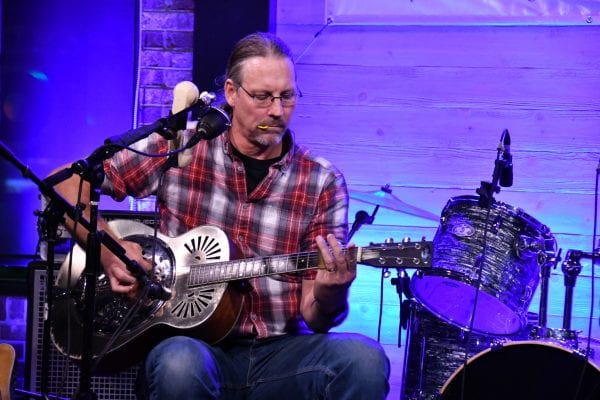
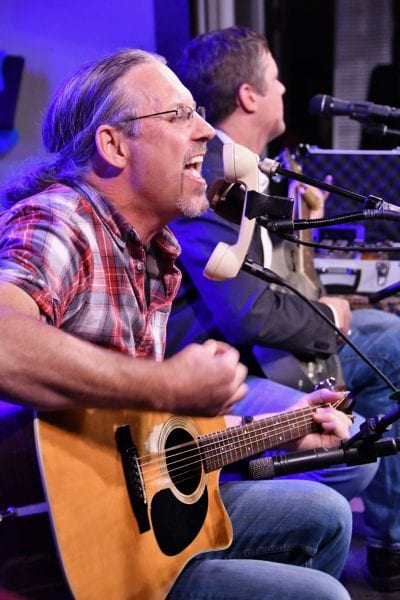
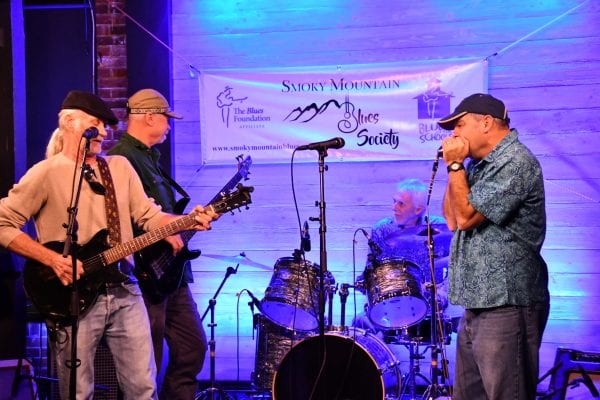
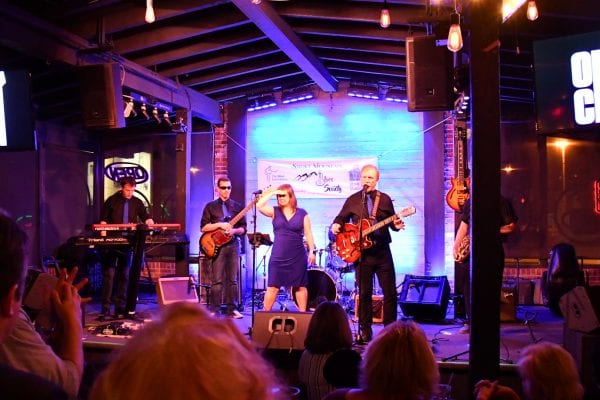
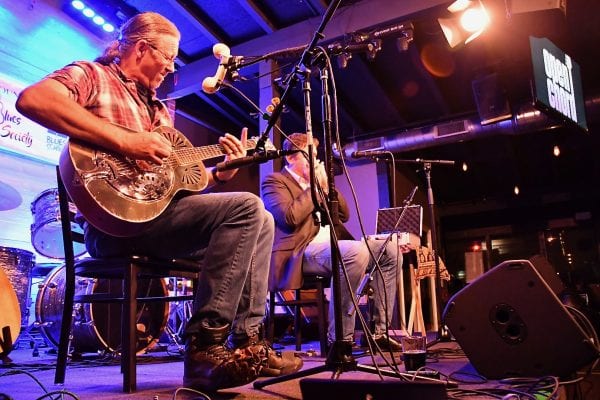
All shot with the 18-200 VR Zoom, which is an awesome lens.
WHAT COULD ACCOUNT FOR THIS? “The IQ gains of the 20th century have faltered.” I’m tempted to blame Twitter and Facebook, but that doesn’t really fit the data. Fairer to say that they just make the problem plain. . . .
HEADLINES I NEVER THOUGHT I’D SEE: Parker Posey is the Perfect Dr. Smith for Netflix’s Lost In Space.
(Via John Podhoretz.)
ANDREW KLAVAN: I’m Done With the Sex Scandals.
MICHAEL WALSH: The End of Media History and the Last Honest Man.
What can journalism do to repair its tattered reputation? For one thing, it needs to stop responding like this:
A CNN spokesperson previously told POLITICO that the reporters involved in the latest correction, Manu Raju and Jeremy Herb, would not be disciplined. “There will not be any disciplinary action taken because every procedure put in place as part of the editorial process was followed,” the spokesperson said. “People don’t get fired at CNN for making a mistake. They get fired when they don’t follow editorial procedures.”
If that’s its”editorial process,” then CNN has a bigger problem than it thinks. Reporters learned many lessons from Watergate, almost all of them bad, and one of the worst was the “two-source” rule that allowed Woodward and Bernstein to get information into print that wouldn’t have otherwise passed muster.
Read the whole thing.
GARRISON KEILLOR? WHO HE? Rod Dreher links to a column by David Vossbrink of the San Jose Mercury, who notes “Erasing Garrison Keillor’s Prairie Home Companion is a ‘1984’-like excess:”
Garrison Keillor has been disappeared into the Memory Hole. If you look for his biography or the archived shows from a half century of “A Prairie Home Companion” on the website of Minnesota Public Radio since his fall from grace, you’ll now find only this: “Sorry, but there’s no page here.”
Keillor and his entire body of work from “A Prairie Home Companion” and “Writer’s Almanac” have been effectively erased from the archives of MPR, along with the work of all the other storytellers, singers, poets and production staff who made the shows successful.
In these tumultuous days of unceasing revelations of sexual scandals in media, politics and business, media enterprises especially face a new ethical challenge with their fallen stars: What do you do with history and art?
If you only chose to partake of art, music, and literature created by morally upstanding persons, you’d quickly come to the end of what’s available. Museums would empty out. Concert halls would fall silent. Bookstores would have to be repurposed as yoga studios, and movie theaters as hipster churches. The unfortunate truth is that bad, or at least deeply flawed, people often make the best art.
Assuming the worst about Garrison Keillor’s private behavior does not negate the decades of pleasure — wholesome pleasure, let it be noted; my kids and I used to listen to his show together — that his quality radio program provided. If we grant MPR and content-owners like them the right to erase the artistic legacy of creators like Keillor, where does it stop? Who will be next?
Indeed. Meanwhile, a former Martin O’Malley 2016 presidential campaign state coordinator and DNC organizer named Race Hochdorf explores “Garrison Keillor & The Dark Side Of #MeToo:”
One defense of assuming guilt is “Why would a woman lie about harassment or assault?” This is irritating for two reasons: 1) It presents women as saintly creatures, come down from heaven above, who would never ever have the desire to lie about abuse for any social or material benefit whatsoever (though this actually happens frequently in child custody cases, and despite the fact that several false rape allegations have made headlines in the past decade: The Rolling Stone/UVA case, the Duke Lacrosse case, and the Columbia University/“Mattress Girl” case to name just a few), and 2) It suggests that if no clear motive for lying about an incident can be immediately discerned, then automatic belief should be chosen over neutral investigation.
Another defense of assuming guilt of the alleged perpetrator is that the approach isn’t meant to be applied to the legal system, only applied in a social context. And what reassurance that is! Don’t worry men. If you ever find yourself among the 2-10% of persons falsely accused of rape, you can sleep easy knowing that even if a court of law finds you not guilty, society will loathe and ostracize you regardless. But this doesn’t matter to mainstream feminist writers and activists. In fact, they’re ecstatic about the possibility of innocent men being concerned and worried.
Emily Lindin, a columnist for Teen Vogue, tweeted: “Sorry. If some innocent men’s reputations have to take a hit in the process of undoing the patriarchy, that is a price I am absolutely willing to pay.”
But note how the article begins:
But it was the second work of Keillor’s that I read, his nonfiction Homegrown Democrat, which proved to have the greatest impact, convincing me to ditch my naive and juvenile libertarianism for a practical and caring liberalism that stressed a balance between heart and mind. It was not this book alone, mind you. My transition from libertarianism to liberalism was more of a journey than just one book or thinker. But nevertheless, Homegrown Democrat was the “straw that broke the camel’s back.” It was a book that was able to present a set of political ideas not as a set of political ideas, but as a deeply personal reminiscence of community and citizenship. It was democracy as a story told by a village elder near a fire, rather than a lecture delivered by an overly-polished plastic hack.
In short, while Garrison Keillor isn’t necessarily one I would consider an “intellectual influence,” his work has always managed to bring a smile to my face, as it no doubt has done for millions of other people. He is a warm old man with a tender voice who — up until recently — had found his life’s purpose in public radio broadcasting and in writing. He was the face of a kind, humble, rural liberalism; a liberalism, I should add, that is far too rare in American political discourse today.
Keillor is “the face of a kind, humble, rural liberalism; a liberalism, I should add, that is far too rare in American political discourse today”? It’s much rarer that Hochdorf thinks — evidently he missed Keillor, then about 74, telling the New York Times last year just how kind, humble and a man of the rural people he is:
Curiously, Mr. Keillor has always found it difficult spending so much time with the strong, good-looking, above average people of Lake Wobegon, which he based on his relatives, past and present.
In “The Keillor Reader” (2014), he complained bitterly about “their industriousness, their infernal humility, their schoolmarmish sincerity, their earnest interest in you, their clichés falling like clockwork — it can be tiring to be around.”
Speaking on his porch, Mr. Keillor said of Lake Wobegonians, i.e., his relatives, “I am frustrated by them in real life.” They were too controlled by good manners, he said, and “have a very hard time breaking through.”
So why devote so much of his professional life ruminating about them? “It’s the people I think I know,” he replied.
Will he miss them, and the weekly jolt of the show?
“No,” he replied. “No.”
Or Keillor, who “has made roughly $400,000 worth of political contributions to Democratic candidates and groups over the past 30 years,” according to the Washington Free Beacon, describing Trump’s Christian supporters in January, in the Washington Post:
And so the Boy President heads for Washington to be sworn into office, pumping his fist, mooning the media, giving the stinky finger to whomever irks him, doing his end-zone dance, promising to build the wall, cut taxes, create jobs, provide great health insurance for EVERYONE and send his son-in-law to the Middle East to solve that little problem, and the rest of us will sit in a barn and keep ourselves warm and hide our heads under our wings, poor things. Discouraging.
So I’ve been shopping around for a new religion to see me through the next four years. Too many of my fellow Christians voted for selfishness and for degradation of the beautiful world God created. I guess they figured that by the time the planet was a smoky wasteland, they’d be nice and comfy in heaven, so wotthehell. Anyhow, I’m looking around for other options.
Which was pretty much his reaction to George W. Bush’s supporters in 2004:
The party of Lincoln and Liberty was transmogrified into the party of hairy-backed swamp developers and corporate shills, faith-based economists, fundamentalist bullies with Bibles, Christians of convenience, freelance racists, misanthropic frat boys, shrieking midgets of AM radio, tax cheats, nihilists in golf pants, brownshirts in pinstripes, sweatshop tycoons, hacks, fakirs, aggressive dorks, Lamborghini libertarians, people who believe Neil Armstrong’s moonwalk was filmed in Roswell, New Mexico, little honkers out to diminish the rest of us, Newt’s evil spawn and their Etch-A-Sketch president, a dull and rigid man suspicious of the free flow of information and of secular institutions, whose philosophy is a jumble of badly sutured body parts trying to walk.
Funny how “kind, humble, rural liberalism” sounds quite a lot like angry, smug, punitive* urban leftism, the type practiced by those who are busy airbrushing Keillor out of Minnesota history. As Dreher writes, “Unpersoning the accused ‘Prairie Home Companion’ host is a totalitarian act.” Similarly, Keillor himself had no problem making unpersons out of anyone whose political views he disagreed with – pretty much, based on the quotes above, half the country — to ally himself with those who smash the statues and stoke the memory hole.
* And don’t get the Hillary and Obama supporting Keillor started on gays raising children.
UNSURPRISINGLY, THE ANSWER TURNS OUT TO BE NO: The Root: Is the South More Racist Than Other Parts of the US?
AT AMAZON, Holiday Savings in Bed and Bath.
THEY TOLD ME IF TRUMP WERE ELECTED, OUR POLITICS WOULD BE DOMINATED BY RELIGIOUS FANATICS CALLING DOWN HELLFIRE ON THEIR OPPONENTS. AND THEY WERE RIGHT! Jerry Brown Claims Trump Does Not Have ‘A Fear Of The Lord.’
LOTS OF ROTTEN FRUIT READY TO FALL? The dance world and sexual harassment. “Company directors (the heterosexual ones, that is; I know less about the habits of the gay directors, but I’m assuming the story is not too different) often sleep with their dancers. They even sometimes marry them; Balanchine, for example, was famous for this, having married (and divorced) a whole series of them. So the idea in ballet is not to eliminate the sex or the touching—I think that would be impossible—but to eliminate the harassment.” Well, that probably worked better before the witch hunts.
DON’T FORGET THE SECURITY ADVANTAGES: Spread the swamp? Trump administration wants to move government offices out of Washington
Advocates for this idea neglect perhaps its most important aspect, the way it would make the federal government much more resilient in the aftermath of a catastrophic terrorist attack on Washington, D.C., such as a dirty bomb or biological attack on the Metro. Why would you want all of the most important government offices and officials to be concentrated within a few square miles?
THE RAGE OF A PRIVILEGED CLASS: “The Democrats are acting crazy thanks to racial politics—specifically, the angry racial politics of upper-middle-class white liberals.” “Many liberal whites wanted to be rid of the culturally conservative, economically liberal, working-class white voters whom Democrats had courted in the previous decade. Upper-middle-class whites were embarrassed by these people.”
APPLES, BANANAS, CRACKERS AND NUTS: 18 Questions CNN Needs To Answer After Getting Busted For Fake News.

(Classical allusion in headline.)
THE MEDIA KEEPS OWNING ITSELF: WaPo writer apologizes to President Trump for posting ‘phony photo of empty arena.’
It’s weird:

SOCIAL JUSTICE WARRIORS ARE HORRIBLE PEOPLE: “White Women Tears”—Critical Theory on Lindsay Shepherd.. “Two weeks ago, I analysed an incident at Wilfrid Laurier University, where teaching assistant Lindsay Shepherd was reprimanded for playing a video clip from a televised debate on the compelled use of gender pronouns, and I connected it to the influence of Critical Theory in academia. Last week, I defended Jordan B. Peterson—a Canadian psychology professor who was part of the debate Shepherd played and who became a central figure in the Laurier media coverage—against criticism that he’s a far-right ideologue who misunderstands what he’s criticising. In this article, the final one in the series, I examine what I perceive to be two important flaws in Critical Theory, and show that understanding these flaws helps make sense of the seemingly inexplicable reactions to the Laurier incident by some students and faculty.”
Well, I think it’s pretty well explained by the fact that Social Justice Warriors are horrible people.
